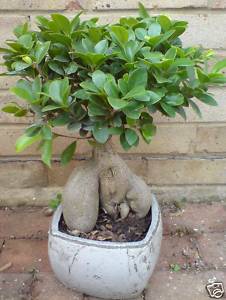lawn, gardening, organic, care
Hi guys! As you are all aware, there is great interest in Organic (Natural) gardening these days. This usually means using natural fertilizing methods, but the Subject is wider than that. I spotted this Article by Francine Stephens at www.checnet.org which is thought provoking and full of basic commonsense. I recommend it to you!
Gardening with your children can be a wonderful way to share your experience of nature with them in an educational and fun setting. Children love to dig in the dirt, make mud pies, and search for bugs. Children also enjoy planting seeds, watching them grow and eating what they have grown. By cultivating their curiosity, you can help your children to develop a life-long love, and respect, for nature.
Healthy soil is the raw material from which a healthy garden can grow. If we allow the soil to retain its natural organic matter, minerals and microorganisms that make the soil a living substance, it will be able to ward off most weeds, insects and disease naturally.
Organic gardening is based on this principle. In an organic garden, synthetic fertilizers and pesticides are not used, but natural fertilizers and pest controls that do not interfere with the health of the garden ecosystem are permitted.
The basic tenets of organic gardening include the following:
CompostingCompost is a rich organic material that results from decomposing organic matter. Mixing compost into garden soil replenishes it with nutrients and organic matter. Compost is easy to make. Simply collect organic material from your kitchen, such as vegetable and fruit waste and garden trimmings, such as fallen leaves and grass clippings, and pile it in a heap outdoors or in a compost bin. This organic matter decomposes with the help of bacteria and heat. What’s left after a few months is call "Black Gold" by some gardeners.
While compost and other organic material release nutrients slowly, they are much safer for the environment and gardens than synthetic fertilizers. Synthetic fertilizers give plants a quick boost, but overuse can result in acidification of soil and does nothing to replace the organic matter which gives substance to soil and supports organisms necessary to soil building.
Aeration of the soilHealthy soil also needs air, which feeds the organisms and microorganisms that break down organic matter to release nutrients. By avoiding pesticides and keeping the soil full of organic material, your garden will be a rich habitat for earthworms. They’ll aerate your soil as well as break down organic matter. You can also use a broad fork to aerate once a year.
Plant diversity When you plant a variety of species in your garden, you encourage genetic diversity, which leads to more successful adaptation in the face of threats by insects and disease. Plant varieties can be more or less attractive to pests as well as garden helpers, such as butterflies and bees. By keeping the garden diverse, your garden ecosystem will be more balanced.
Crop rotation Rotating the location of various types of plants in your garden from year to year prevents the soil from being depleted of nutrients. Corn uses up lots of nitrogen, while legumes put nitrogen back into soil. Planting corn in the same location year after year is likely to result in poorer harvests as time goes due to insufficient nitrogen in the soil. Rotating the corn to another location in the garden prevents the soil from being exhausted of nitrogen. Rotation of plants also prevents soil diseases from taking hold.
Use of cover crops At the end of each season, plant cover crops like clover, rye or alfalfa. They protect soil, keep it from becoming compacted, and can be tilled under to add nutrients back into the soil.
"Companion planting" Planting your vegetables next to other plants that have different odors and root secretions, will help to divert pests away from your plants. Marigolds and tomatoes for example are a good combination. Garlic also helps drive away some insects.
Manual weeding Regular hoeing will control weeds and keep plants healthy and more resistant to insects. Other means of eliminating weeds naturally include pouring boiling water over weeds and using specialized tools, such as a dandelion digger–a long, sharp tool that penetrates as far as dandelion roots do. Using mulch around plants also keeps weeds from sprouting and competing with garden plants.
All gardens will have some pestsTolerating minor flaws and blemishes on fruit and vegetables does not diminish the nutritional value of the food. Garden pests should not be regarded as enemies, rather as indicators of plant stress, letting you know that something is not right. Sick plants attract predators, and an infestation should be signal that your garden ecosystem is out of balance. Adding beneficial insects, such as ladybugs or lacewings boost the predator populations and keep problem insects in check. Too much or too little water, fertilizer, sun, etc., may cause disease.
Terry Blackburn. Internet Marketing Consultant, living in South Shields in the North-East of England. Author and Producer of blog http://www.lawnsurgeon.blogspot.com Author of "Your Perfect Lawn," a 90 Page eBook devoted to Lawn Preparation, Lawn Care and Maintenance. Find it at http://www.lawnsurgeon.com
I would be very interested to have your comments on this Article.
Article Source: www.checnet.org
lawn care, organic, gardening

No comments:
Post a Comment